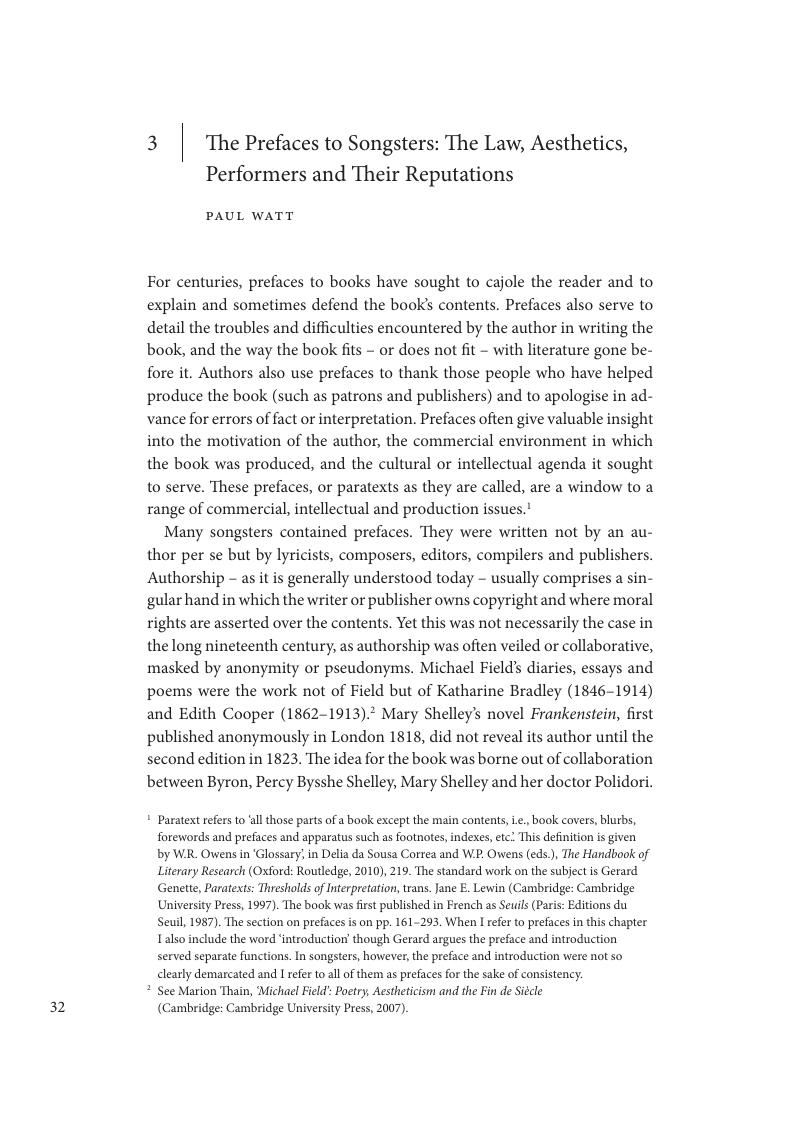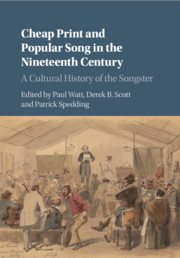Book contents
- Cheap Print and Popular Song in the Nineteenth Century
- Cheap Print and Popular Song in the Nineteenth Century
- Copyright page
- Contents
- Figures
- Tables
- Contributors
- Acknowledgements
- 1 The Nineteenth-Century Songster: Recovering a Lost Musical Artefact
- Part 1 Production, Function and Commerce
- 2 American Secular Songsters in the Nineteenth Century: An Overview
- 3 The Prefaces to Songsters: The Law, Aesthetics, Performers and Their Reputations
- 4 The Genesis of Thomas Moore’s Irish Melodies, 1808–1834
- Part 2 Politics
- Part 3 Nation, Place and Purpose
- Index
- References
3 - The Prefaces to Songsters: The Law, Aesthetics, Performers and Their Reputations
from Part 1 - Production, Function and Commerce
Published online by Cambridge University Press: 07 April 2017
- Cheap Print and Popular Song in the Nineteenth Century
- Cheap Print and Popular Song in the Nineteenth Century
- Copyright page
- Contents
- Figures
- Tables
- Contributors
- Acknowledgements
- 1 The Nineteenth-Century Songster: Recovering a Lost Musical Artefact
- Part 1 Production, Function and Commerce
- 2 American Secular Songsters in the Nineteenth Century: An Overview
- 3 The Prefaces to Songsters: The Law, Aesthetics, Performers and Their Reputations
- 4 The Genesis of Thomas Moore’s Irish Melodies, 1808–1834
- Part 2 Politics
- Part 3 Nation, Place and Purpose
- Index
- References
Summary

- Type
- Chapter
- Information
- Cheap Print and Popular Song in the Nineteenth CenturyA Cultural History of the Songster, pp. 32 - 46Publisher: Cambridge University PressPrint publication year: 2017



